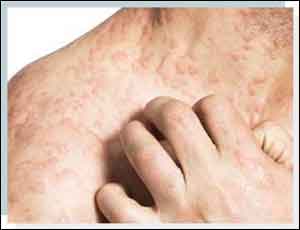- Home
- Editorial
- News
- Practice Guidelines
- Anesthesiology Guidelines
- Cancer Guidelines
- Cardiac Sciences Guidelines
- Critical Care Guidelines
- Dentistry Guidelines
- Dermatology Guidelines
- Diabetes and Endo Guidelines
- Diagnostics Guidelines
- ENT Guidelines
- Featured Practice Guidelines
- Gastroenterology Guidelines
- Geriatrics Guidelines
- Medicine Guidelines
- Nephrology Guidelines
- Neurosciences Guidelines
- Obs and Gynae Guidelines
- Ophthalmology Guidelines
- Orthopaedics Guidelines
- Paediatrics Guidelines
- Psychiatry Guidelines
- Pulmonology Guidelines
- Radiology Guidelines
- Surgery Guidelines
- Urology Guidelines
Generally avoid Systemic Corticosteroids for Atopic Dermatitis : Expert Group

International group of clinicians and researchers with expertise in Atopic Dermatitis, reached consensus on 12 key statements related to the use of systemic corticosteroids for severe AD. The results provide a framework for clinicians caring for patients with severe AD who are considering systemic CS as a treatment option. The opinion leaders agreed on the statements that, for patients of any age, systemic CS should generally be avoided but may be used rarely, and strongly opposed the statements that systemic CS should be used regularly for the severe AD.
A.M Drucker et.al and his associates conducted a survey to reach consensus among an international group of AD experts on the use of systemic corticosteroids for AD.
The survey consisted of 26 statements accompanied by visual analogue scale (VAS) responses and six open‐ended questions. The VAS represented a continuum from ‘strongly disagree’ to ‘neutral’ to ‘strongly agree was distributed to the International Eczema Council (IEC).Participants was asked to indicate with a slider along the VAS whether they agreed or disagreed with a statement.
Consensus was reached in agreement on a statement if < 30% of respondents marked to the left of 'neutral' towards 'strongly disagree
Sixty of 77 (78%) IEC members participated. Consensus was reached on 12 statements, including that systemic corticosteroids should generally be avoided but can be used rarely for severe AD under certain circumstances, including a lack of other treatment options, as a bridge to other systemic therapies or phototherapy, during acute flares in need of immediate relief, in anticipation of a major life event or in the most severe cases. If used, treatment should be limited to the short term.
Most respondents agreed that systemic corticosteroids should never be used in children, but consensus was not reached on that statement. If more stringent consensus criteria were applied (e.g. requiring < 20% of respondents marking towards 'strongly disagree'), consensus would have been reached on fewer statements.
Based on expert opinion from the IEC, routine use of systemic corticosteroids for AD is generally discouraged and should be reserved for special circumstances.
The study concluded that in clinical practice guidelines and position statements concerning the management of atopic dermatitis (AD), the use of systemic corticosteroids (CS), including prednisone, hydrocortisone and celestone, is generally discouraged, with use limited to special circumstances.
The study was published in British journal of Dermatology
For more reference log on to: https://doi.org/10.1111/bjd.15928

Disclaimer: This site is primarily intended for healthcare professionals. Any content/information on this website does not replace the advice of medical and/or health professionals and should not be construed as medical/diagnostic advice/endorsement or prescription. Use of this site is subject to our terms of use, privacy policy, advertisement policy. © 2020 Minerva Medical Treatment Pvt Ltd